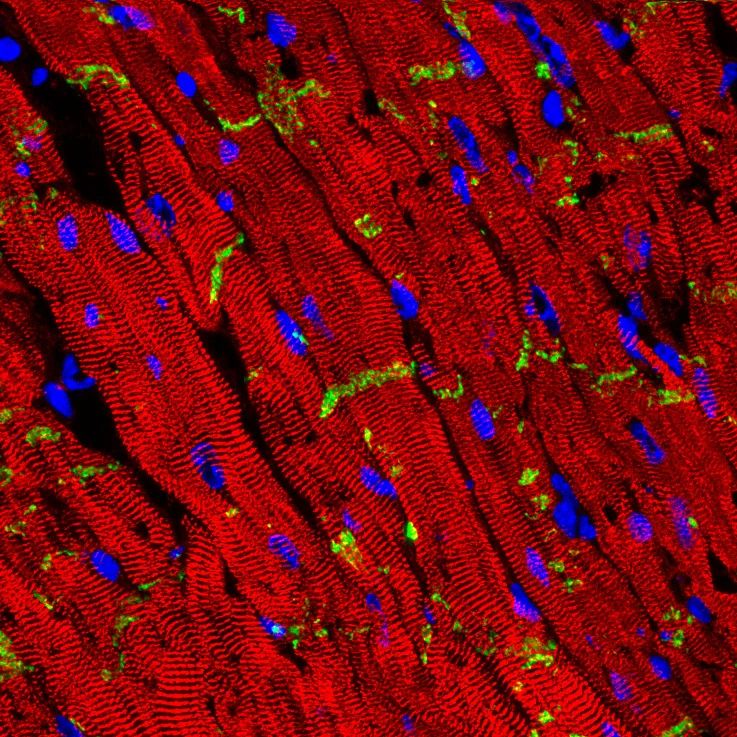
Research Interests & Current Projects
Cardiovascular diseases account for over 50% of the deaths in North America, and represent the greatest cost to the Canadian Health Care system. In Dr. Michelle Bendeck’s lab, we perform research to uncover the mechanisms involved in atherosclerosis and heart failure. In particular, we are exploring the interactions between cells and the extracellular matrix during fibrosis. We are investigating experimental models of arterial injury and atherosclerosis in transgenic mice, studying the role of extracellular matrix, the novel discoidin-domain receptors (DDRs), and cadherins in mediating smooth muscle cell and macrophage responses. We are particularly interested in the initiation of atherosclerosis, and the atherosclerotic complications of plaque rupture and calcification. These in vivo experiments are paralleled by in vitro studies investigating the activation of downstream signaling pathways in smooth muscle cells and macrophages.
Vascular calcification
DDR1 is involved in promoting intimal calcification and engages in a positive feedback loop with YAP/TAZ to promote its own expression. We are currently investigating the role of YAP/TAZ in the osteochondrocytic transdifferentiation of vascular smooth muscle cells and calcification.
Lung development and associated pathologies
Genetic deficiency of DDR1 in mice results in impaired alveolar development and Bronchopulmonary Dysplasia - Pulmonary Hypertension (BPD-PH) like characteristics. We are investigating the role of DDR1 in alveolar development and lung development associated disease.
Translational therapies for restenosis
As part of the Translational Biology and Engineering Program, our research includes potential avenues for clinical impact. Currently, we are developing a new therapeutic strategy for restenosis, targeting smooth muscle cells.
In-vivo models for atherosclerosis
Global knockout of DDR1 in mouse models influences matrix accumulation, plaque development and vascular smooth muscle cell migration in developing plaques. We are working to further investigate the role of vascular smooth muscle cell specific-DDR1 in plaque development and calcification by developing a smooth muscle cell specific-knockout mouse model.



